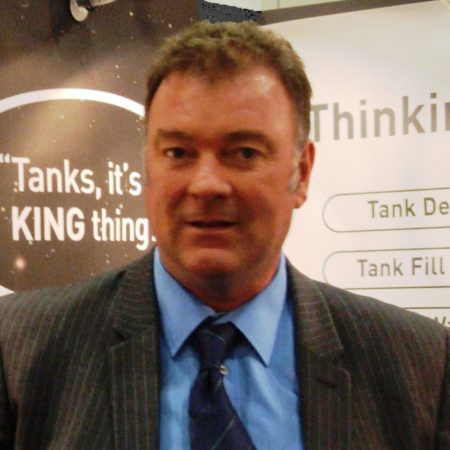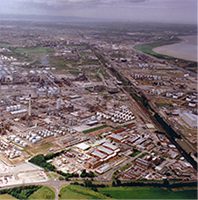Colin Rutherford, Turners (Soham) trading as Lewis Tankers
“Sixty per cent of Lewis Tanker drivers have already completed five CPC training modules and have their Driver Qualification Card. Our aim is to ensure all our remaining drivers have the required 35 hours to qualify well before the September 2014 deadline.”
Mick Smith, Suckling Transport (part of SBG Silvio Bertani Group)
“At Suckling Transport we looked at all the options and decided early on to carry out the training inhouse. We sent our driver trainers to our ADR training provider who put them through a train the trainer course. This included a number of JAUPT approved courses that we have delivered to our driver workforce. Rather than complete 35 hours training in one go, we delivered the courses in 7-hour segments periodically. This helped with resources and spread out the costs as well.
“As we approach September 2014 I’m pleased to say we’re in extremely good shape for our driver CPC compliance.”
Ann Dawson, Norbert Dentressangle Tankers
“Norbert Dentressangle invests heavily in driver training and through our dedicated in-house scheme has developed a robust Safe Driving Plan. Linked to this we provide CPC training that is accredited by the Joint Approvals Unit for Periodic Training (JAUPT).
“For tanker drivers we’ve combined this with the introduction of the Petroleum Driver Passport (PDP) which ensures that all training remains current and complies with the latest legislation. I am a big supporter of the PDP scheme and its policy of an annual practical assessment.
“Norbert Dentressangle Tankers has had a strong representation with the Downstream Oil Distribution Forum (DODF) since the launch of improving safety and driving standards within the fuel industry in early 2012. It has been a commitment of our company from the start to further improve best practice as part of the DODF.
“For many years we’ve offered comprehensive ADR training to both internal and external candidates, and it is our intention to fully support the PDP scheme with extensive training through our dedicated driver training centre, which delivers bespoke programmes.”
Tony Leighton, Suttons Group
“Suttons has accredited DCPC trainers within our inhouse pool of driver training instructors. Our trainers deliver accredited DCPC courses and because this is all carried out inhouse, we don’t need to rely on third party input and can control the pace of our training so that we meet all requirements. We’re well on track to achieve all our DCPC training in advance of the deadline.”
Article 7a of the Fuel Quality Directive seeks to reduce greenhouse gases by 6% by allocating values to the source of crude under six options 0 – 5, where 0 = ‘as is’ and 5 = full crude differentiation
Tamara Earley, Greenergy
“The way that Article 7a will be interpreted is still under discussion and there are a number of different ideas on the table. The devil will be in the detail, so at this stage the impact for refiners, importers, wholesalers and their customers is still unclear.
Like others in the industry, Greenergy wants to find a solution that minimises the administrative burden for the industry. However that shouldn’t mean giving up on systems that are effective in reducing carbon emissions. The Fuel Quality Directive is an important opportunity to begin to understand and reduce the carbon intensity of fossil fuel, and we believe it should be implemented in a way that challenges us to achieve its potential.”
Chris Hunt, UKPIA
“The Fuel Quality Directive was never intended as a greenhouse gas reduction mechanism – its objective was as stated in the title, to ensure fuel quality, hence any attempt to use it in this way is misplaced, misdirected and needlessly complex – downstream oil suppliers have no influence on upstream emissions.
Article 7a is a big, big issue for European importers and refiners which puts them at a disadvantage with their competitors in the rest of the world. Crude or product shuffling is likely to result, leading to higher GHG emissions on a global basis.
We can deal with option 0 because it sets EU wide default values and doesn’t require masses of verification. Option 1 would differentiate between conventional and non conventional sources.
On any scale, options 1-5 will bring significant increases in refinery and importer costs: An estimated additional 3p at the pump for biofuels blending under the Renewable Energy Directive with an estimated £300m cost to industry for monitoring and verification of options 1-5, without taking into account the abatement costs these options imply.”
James Spencer, Portland Price Protection
“It’s difficult to see how the new legislation will impact greenhouse emissions on a global basis as high carbon crudes will simply be sent to refineries outside of the EU. That being said, the EU has to stay true to its environmental targets and this sends a clear signal of intent.
“In terms of direct impact, costs may increase for EU refiners because they will be forced to buy sweet crudes, although it may well transpire that heavier crudes are discounted to take account of this, thus offsetting the increased legislative cost burden.”
A key source of supply – the Stanlow refinery – supplies approximately 15% of the Uk’s transport fuel requirements
It also has 1.8 million metric tonnes (mt) of catalytic reforming and 3.8 million mt of fluid catalytic cracking capacity, placing it in the category of medium complexity, with a Nelson Complexity Index of 8.2.
Storage capacity for crude oil and refined products totals two million tonnes. Its crude storage facility is located at Tranmere Oil Terminal from where it is transported to Stanlow via a 15 mile pipeline.Output capabilities in metric tonnes pa
The 22nd September 1959 was a red letter day in the annals of Irish refining, with the official inauguration of the country’s only refinery at Whitegate, near Cork city. Jointly owned by four major suppliers – BP, Esso, Shell and Texaco, and operated by Esso, it remained under their operation until 1981,when it was deemed to be no longer viable and was mothballed for a short period.
Crude oil processing was resumed with state ownership, under the aegis of the Irish National Petroleum Company. The facility was sold in 2001 to Tom O’Malley’s US Tosco Corporation which was then acquired by Phillips Petroleum. The company merged with Conoco in 2002, when it became a ConocoPhillips refinery. In 2007 the latter unsuccessfully attempted to sell the plant and, in May 2012, when the company split in to two separate, upstream and downstream, entities, it came under the ownership of Phillips 66.
With a distillation capacity of 71,000bpd and capable of accommodating crude carriers of up to 85,000dwt, the refinery exports approximately one third of its output. The balance of circa two million tonnes per year of white oil products, supplies just under 30% of the Republic’s oil market requirements, particularly to the province of Munster.
The remainder of the Republic’s oil requirements are satisfied by imports, 85% of which are supplied from the UK, principally from west coast refineries, with Valero’s Pembroke facility being the largest single source. Norway is the main non UK supply source of imports.
Oil is by far the principal energy source in the Republic, accounting for almost 60% of total energy consumption.
Apart from Whitegate, Ireland’s oil market as a whole is serviced from 12 mainline distribution terminals, four of which are located in Northern Ireland and eight in the Republic, all are sea fed.
Future uncertainties
When the Irish government sold Whitegate refinery to Tosco in 2001, the transaction came with the stipulation that crude oil processing operations should continue until at least 2016.
Mindful of that, the Department of Communications, Energy and Natural Resources commissioned a consortium of Purvin & Gertz and Byrne O’ Cleirigh to undertake a study entitled The strategic case for oil refining requirements on the island of Ireland, which was completed at the end of February 2012. This reached three main conclusions:
More
With energy prices becoming a major point of political debate in 2013, below Dr Craig Lowrey, consultant at UX Energy Services looks back over a year that has brought energy’s impact on the cost of living very sharply into focus
Economic and geopolitical factors have interacted with supply and demand issues in the global oil market generating the movement and volatility which is generally seen as synonymous with oil. The future of Iran’s nuclear programme with the possibility of sanctions easing, civil unrest in Libya affecting its crude exports, and the pace of global economic growth have all served to provide sentiment and direction. For the most part, the price of crude oil has remained persistently above $100 per barrel – falling briefly below this important psychological benchmark in April 2013 after disappointing economic news from the US and China, as well as concerns over Europe’s financial stability, given developments in Cyprus.
The UK Continental Shelf continues to be a key contributor to both the nation’s supply-demand balance and also the economy. There were some particularly positive supply developments with the start up of production at the Jasmine and Breagh fields; the former being the largest field to commence commercial operation in the North Sea since Buzzard six years ago. (Disappointingly, the Breagh field ceased operation only a few weeks after it came online, with developers citing technical problems and Buzzard experienced production problems for the second year in a row.)
THE UK DEPENDS ON IMPORTS FOR 44% OF ITS HEATING OIL REQUIREMENTS
The industrial dispute at the Grangemouth facility illustrated the potential vulnerability of the UK market to disruptions, coming as it did in the wake of a report from the House of Commons Energy and Climate Change Select Committee warning that domestic production could not keep up with rising demand for refined oil products. Indeed, the same report pointed out that the UK depends on imports for 44% of its heating oil requirements. A fact that vividly illustrates the key role that imports and international factors play in determining domestic prices.
An affordable and secure supply
When a fuel customer’s primary concern is an affordable and secure supply, the aforementioned global developments may seem literally and figuratively half a world away. So how do these international issues translate into domestic matters? And, how does the growing criticism of gas and electricity suppliers, and the possibility of changing policies, relate to off-grid energy sources such as heating oil?
As the Big Six started to announce the latest round of domestic gas and electricity tariffs, the Labour Party declared a 20-month freeze on energy bills from May 2015 – should it win the next general election. Throughout the ensuing debate, very little mention was made of other fuels such as heating oil.
The possibility of a heating oil price freeze
Citing international factors, gas and electricity suppliers plus a number of independent commentators have questioned whether such a prize freeze policy is practical.
Could such a freeze work in the heating oil market? At first glance the answer would appear to be no – given the market’s highly regionalised nature and the fact that international oil prices ultimately dictate price. Despite this, there could be options for something akin to a price freeze.
According to the 2011 Office of Fair Trading report into the off-grid energy market, over 90% of the fluctuation in the price of heating oil is based upon the price of crude oil; any policy would therefore have to focus on this. One possible approach would be a measure similar to the Fair Fuel Stabiliser that operates in the petrol market. While this is based upon amendments to the prevailing rate of duty to compensate for variations in the crude oil price, a similar pricing approach could in theory be employed to insulate the rates paid by customers from international oil market volatility.
Were such a policy to be implemented, fiscal and legislative implications would have to be carefully considered alongside the sharp differences in structure between the heating oil market and its gas and electricity counterparts, not to mention issues relating to changes in foreign currency exchange rates and other variables.
Given regional variations in price and the site specific nature of delivery charges and volumes, the enforcement of such a policy would represent a major challenge and could ultimately preclude its introduction. Not all heating oil retailers are of a size and scale that would allow them to manage any additional regulatory or compliance obligations in a cost effective manner.
A greater focus on off-grid customers
With energy prices receiving an increasing amount of media coverage, it is important to ensure that off-grid fuel customers are seen as being of no less importance in terms of policy and bills. Given that off-grid energy is often more expensive there is an argument that they should receive a greater focus. Whether this is borne out by political developments in 2014 and the run-up to the 2015 general election remains to be seen.

Paul Vian – ambitious plans for Certas Energy
In November 1999, I interviewed my very first fuel distributor at Carlton Fuels which had just been listed among the north-west’s top businesses. Asked for the secret of his success, owner Frank Hunter said the company’s strength came from its people, citing his 28-year old sales manager, Paul Vian for special mention. Fourteen years later and now managing director at Certas Energy, Paul Vian was in the interview chairFrom GB Oils to Certas Energy
Why the change of name? “It was more than a change of name; it was a culmination of a number of developments within the business in the last 12 months – a restructured sales & operations function (including the introduction of logistics services) and renewed investment both in our people and also our infrastructure. However, the main driver was ensuring consistency – for customers and colleagues. As a business built on acquisition, we had any number of different ways of doing things. So, this two-year project re-established who we were, what we do, and most importantly how we did it.” Paul explained.
“The name Certas in itself is significant as it translates to ‘Certainty’ which is at the heart of the business; we are committed to providing assurance and certainty of supply to our customers. The Certas brand not only reflects the size and strength of the business but also the great team that sits behind it. Along with the name and identity, we created the Certas Energy Way of Working where we shared our company mission, giving us a common goal, and a shared set of values. Externally, Certas Energy positions us as a leading market force in the distribution sector, and gives us the scope to achieve our growth ambitions, both organically and through acquisition, the latter of which we are constantly reviewing to see where there is opportunity for acquisition expansion.
Certas Energy branded tankers are now being spotted out on the road. “We wanted to get the name known as quickly as possible,” said Paul. “Since the vehicles have been on the road, the name is gaining momentum.” The company operates 1,000 vehicles; starting next summer we will ramp up the pace of converting our vehicles to the Certas Energy branded ones.
WE’LL LOOK AT ANY OPPORTUNITY THAT PRESENTS ITSELF IN ANY BUSINESS SECTOR
There are 45 brand names operating under the Certas Energy umbrella. Although there is an aspiration to operate under the one name, Paul appreciates that existing brands cannot be changed overnight. “A collective name is an ambition but we’re not sure that we can get there just yet…
“At the start of the brand project, we conducted one of the largest pieces of customer research in the industry. It was essential we listened to our customers. In the domestic market our customers have developed strong relationships with a particular brand over many years. We now have a great understanding of the different factors customers are looking for when dealing with us so we need to operate with sensitivity for the foreseeable future; retaining customers will still require a multi-brand strategy.
“However, no matter which brand, customers know who they’re dealing with in terms of the parent brand; we are completely transparent.”
GB Oils did receive some adverse media coverage in the winter of 2010/11, what action has the company taken to remedy this?
“We’ve taken a much more proactive approach to our corporate social responsibility,” said Paul.
“We regularly offer bursary schemes across the country providing donations and funds to a host of local charities and community initiatives.
“This winter Certas Energy is the official corporate partner of Independent Age (IA), a charity which works with and for older people throughout the UK and Ireland. And we are working with them to help us better identify and support elderly customers.”
“We’re also big supporters of the new Code of Practice recently launched by the FPS, and as market leaders we’re very happy to drive this through our business.
“Across all our brands every customer knows the price of a delivery before it’s delivered. Underlying oil prices may change daily but our consumer pricing policy ensures the quoted price is the one the customer pays thus giving them the ability to make an informed decision. With the more financially vulnerable, we encourage budgeting by paying over a period of time via direct debit and ordering early.”
“The business is an active supporter of the Buy Oil Early campaign run by the Action with Communities in Rural England, Citizens Advice Bureau, Consumer Focus, and FPS.
“Additional drivers and telesales staff have ensured that we’re much better geared up for the winter period when the number of calls and deliveries can more than double. In times of peak demand, third party logistics cover may also be used to ensure a good level of customer service.
“We like to think we are leaders now in terms of customer service and transparency,” added Paul.

Steve King – KingTankTechnic would never line a tank of poor integrity which has failed the Engineering Equipment and Materials Users’ Association (EEMUA) guidelines
King Tanktechnic was one of the sixty plus exhibitors at the 2013 Tank Storage Association (TSA) exhibition
Director Steve King who also attended the TSA conference (reviewed in the November 2013 issue of Fuel Oil News) said: “Several of the questions asked at the conference, made it clear to me that many in the bulk storage sector don’t perhaps realise the benefit of lining their tanks.”
Based at Droylsden near Manchester, King Tanktechnic has 22 years of experience in tank lining and coatings which ensure the safe storage of millions of litres of hydrocarbons among many other substances.
“Lining tank bottoms is good housekeeping,” added Steve. “Ninety-five per cent of all the tanks we’ve cleaned and inspected have proven to be corroding from the internal surface, rather than the exterior, with corrosion usually resulting from moisture contamination and microbes producing corrosive bi-products.”
Below Steve provides answers to some of the queries that were raised at both the conference and at King Tanktechnic’s exhibition stand

Brian Worrall,DODF chair with Marisa Ferguson,SQA, at the signing of the agreement
The scheme opened for driver applications on 1st January 2014 and Brian is encouraging businesses to apply as soon as possible: “It’s a bit like the Driver CPC in that sense –there’s not as much time to do it as you may think.”
TERMINALS ACROSS THE UK HAVE FULLY COMMITTED TO THE SCHEME
Although the PDP is not currently a legal requirement, unlike the ADR scheme, terminals will have the right to mandate it from 1st January 2015. “Terminals across the UK have fully committed to the scheme and are in the process of advising customers that they will be mandating it from the start of next year, giving them 12 months to get sorted. Any UK based drivers failing to get a PDP by this date will not be admitted to the terminal,” explained Brian.
Companies have been able to register as a training centre since September 2013. With around 30 signed up by the end of 2013, Brian urged smaller distributors to do the same, pointing out that distributors are able to register to undertake classroom and/or the practical training for themselves: “This could be a real opportunity for smaller distributors to save money as it is relatively low cost doing it this way, especially for the practical part of PDP – it makes perfect sense. Put another way most petroleum carriers are training their drivers anyway and the PDP provides a nationally recognised standard to which the employer can align their training. Also this will now make it easier to register the existing training as a DCPC module.”Making it easier
Aware that the PDP is an additional training requirement, Brian was keen to stress that for most operators, already working to high standards, it will not require a lot of extra work. “By aligning the scheme to the existing ADR and existing operational training it will be possible for drivers to take one of two easy routes. They can either request the additional PDP module when their ADR is up for renewal or take a shorter, interim version covering the key points, which will last until their ADR expires.”
Additionally by using the Scottish Qualifications Authority (SQA) to manage the scheme, administration is streamlined. Not only will the driver number be the same for both schemes, but the photo can also be re-used.
In order to gain accreditation drivers must complete both a classroom and a practical element. The classroom assessment element can be done on paper or online, which is quicker, and can be delivered in house or by a third party. For the practical side, drivers will need access to a terminal and will be assessed by an SQA accredited and registered individual. “Even in smaller companies, a more experienced driver could take on the role of an assessor,” said Brian. “Although industry experience is required, formal training is not.”
The Federation of Petroleum Suppliers (FPS) is also working on providing training modules for its members to use.The benefits
“Distributors will certainly see the benefits of the scheme and in time it will become part of the way they operate,” said Brian.
“Designed by the industry for the industry, the scheme will deliver a consistently high level of training to all drivers in the industry, verified by an accredited third party. The scheme is also open to evolving over time. We are in complete control of the syllabus, which is online alongside the necessary documentation and fee structure.”
Brian also believes that the scheme will deliver reputational benefits for both drivers and companies. “Very much like Gas Safe and OFTEC – we hope that drivers will see it as a badge of honour and professionalism. The intention is to market and promote it more in this way over time.
“As well as being relatively low cost, as the scheme grows it should really enhance the Driver CPC too – combining content and improving delivery of the scheme.
“So far, uptake of the PDP has been good with all the major hauliers and distributors signing up.” www.pdpassport.com

Kabraul and Mike Tasha – diversity of markets ensures that Loud Fuel stays busy all year round
From putting down small roots in 1974 by making deliveries with a single truck, founder Mike Tasha bought the Loud Fuel Company in 1994 and son, Kabraul moved to Falmouth, Massachusetts to manage the business. Today the company has 150 employees and boasts a 15,000 strong customer base in and around the Cape Cod area where it supplies heating oil, gasoline, diesel, biofuel, lube oil and propane.
Although the domestic market is the main area of business, the company also services both the marine and commercial sectors; for Kabraul it is this diversity that he enjoys most. “I can supply completely different industries each day of the week. As well as houses, we supply power plants, research ships, fishing vessels, construction companies and marinas. We also move biofuel from railyards to fuel terminals.” The company’s diversity also ensures that it stays busy all year round and that it is not seasonally affected.
DON’T ASK ANYTHING OF YOUR EMPLOYEES THAT YOU WOULDN’T DO YOURSELFTaking a hands on approach
Working alongside his father, Kabraul believes he has learned the secret to his success: “My father and I are hands on in the daily operations and involved in every aspect of the business. We drive the trucks as well as dispatch them, we’re involved in the repairs, we deal with the customers ourselves as well as our employees.
“Coming into this business I’ve learnt two key things from my father – if you want something doing right you do it yourself and you don’t ask anything of your employees that you wouldn’t do yourself. Hands down and hands on is the key to our success. There are oil companies on every corner and it’s our dedication to our customers that makes us stand out from the rest.”The biggest issues
Like most UK distributors, Kabraul believes that the biggest issue affecting the US distribution market is the rising cost of fuel. The increasing cost of equipment, wages and health insurance are also major bugbears for the company.
Drawing fuel from Inland Fuel in Tiverton, Rhode Island and Citgo Petroleum in Braintree, the company often experiences problems with supply. “Citgo Petroleum runs short – as well as out – many times throughout the year. They’re also very strict on weekly and monthly allocations. However, we’ve yet to have any issues with Inland Fuel.”
Looking ahead Kabraul told Fuel Oil News: “Our future plan is to keep doing what we’re doing and growing this business. There’s a lot of opportunity for growth in this market and we plan to take advantage of it.”
Most Read







